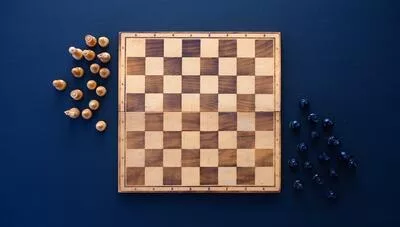Introduction
The game of chess has long been celebrated for its intricate strategy and competitive nature. But beyond the battle of wits and the quest for victory lies a therapeutic side to chess, one that fosters mental well-being and serenity. Chess boards setup and challenging gameplay, provide a unique opportunity for individuals to enhance their mental health. In this blog, we’ll delve into the world of chess boards and explore how they serve as a tool for relaxation, cognitive development, and stress relief.
The Mental Health Benefits of Chess Boards
Stress Reduction and Relaxation
Chess is a game of deep concentration and focus. When you’re engaged in a game, the outside world tends to fade into the background. This heightened focus acts as a natural stress reducer. The calm, deliberate movements of chess pieces on a board can be a soothing and meditative experience. As players strategize and make thoughtful moves, they often find themselves in a state of flow, where stress and anxiety melt away.
Cognitive Enhancement
Playing chess on a board is a mental exercise that sharpens cognitive skills. It enhances problem-solving abilities, memory, and critical thinking. The complex interplay of chess pieces challenges the mind to think several moves ahead, fostering mental agility and strategic planning. This cognitive stimulation can help reduce the risk of cognitive decline associated with aging.
Social Connection and Well-Being
Chess is a social game that brings people together. Whether played with friends, family, or fellow enthusiasts, it creates a sense of connection and camaraderie. Social interaction is a key component of mental well-being, and the bonds formed over a chess board can lead to lasting friendships and improved emotional health.
The Setup of Chess Boards
Order and Structure
One of the unique aspects of chess boards is their orderly setup. Each piece has a designated place, and the board’s grid layout ensures a systematic and structured environment. For individuals seeking a sense of order in their lives, the setup of chess boards provides a calming influence. The predictability of the board’s arrangement can serve as a mental anchor, reducing feelings of chaos and disarray.
Visual Aesthetics
Chess boards are often crafted with attention to visual aesthetics. Their patterns and design can be visually pleasing and create a sense of serenity. The contrasting colors of the board, the intricate details of the pieces, and the overall symmetry contribute to a visually satisfying experience. This aesthetic appeal can have a positive impact on mental well-being by creating a harmonious and balanced environment.
How to Maximize the Mental Health Benefits of Chess Boards
Regular Practice
To fully harness the mental health benefits of chess boards, regular practice is key. Engaging in games and puzzles can help keep the mind active and agile. Whether you’re a seasoned player or new to the game, setting aside time for chess can be a valuable addition to your routine.
Find a Chess Community
Joining a chess club or online community can provide opportunities for social connection and friendly competition. Interacting with fellow chess enthusiasts can be an enriching experience that enhances mental well-being.
Enjoy the Process
While competition is a part of chess, the true joy often lies in the process of playing. Embrace each move, relish the strategies, and savor the moments of deep concentration. By focusing on the journey rather than the outcome, you can derive more satisfaction and mental benefits from your chess board experience.
Conclusion
Chess boards offer a unique pathway to mental well-being. Their stress-reducing properties, cognitive benefits, and social connections make them a valuable addition to a healthy lifestyle. The structured setup and visual aesthetics of chess boards contribute to a calming and orderly environment. To maximize the mental health benefits, regular practice, social engagement, and a focus on the process of play are key.
So, whether you’re a seasoned chess player or someone looking to try this centuries-old game for the first time, consider the soothing influence of chess boards on your mental well-being. The world of chess is not just a battleground for kings and queens; it’s a haven of calm and a sanctuary for the mind, where strategy and serenity coexist. The therapeutic qualities of chess boards can enhance your mental health, promoting a sense of well-being and tranquility in your life. The benefits are not limited to the chessboard; they extend to your overall mental and emotional health, making chess a valuable tool for achieving balance and serenity in a busy world.


